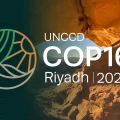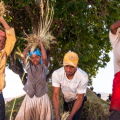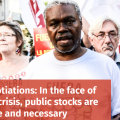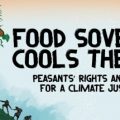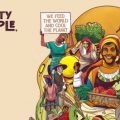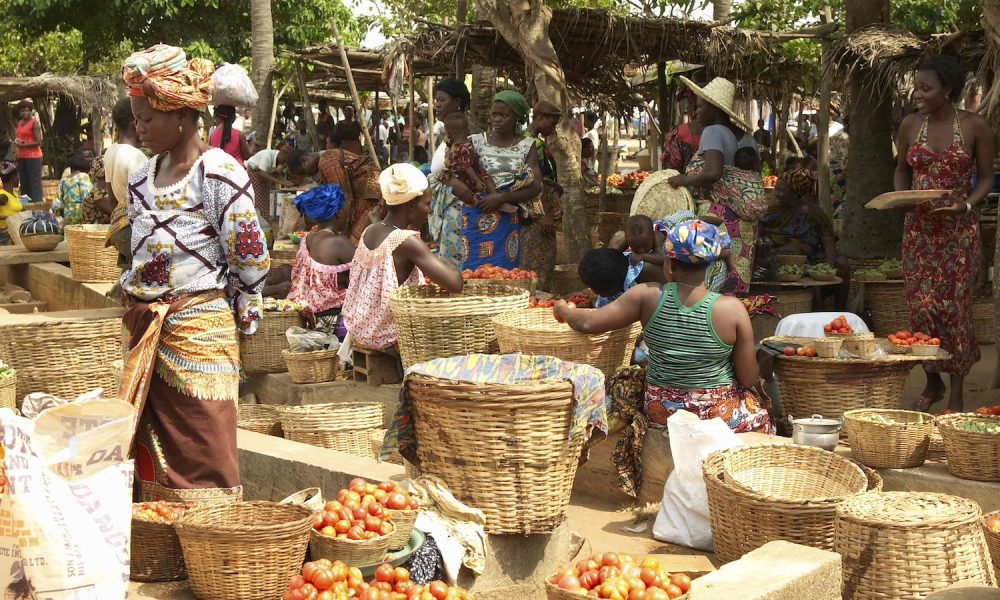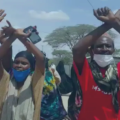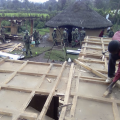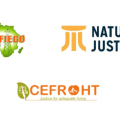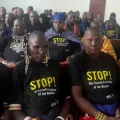Over the last several years, agriculture has stormed onto the climate agenda. And it’s about time. Policymakers, donors, and investors are seeing the wisdom of investing in soil restoration, agroecology, agroforestry, and biodiversity, among other regenerative actions. And yet, what we have learned from our African colleagues is that without simultaneously investing in healthy local markets, these investments in sustainable production are likely to fall short.
Local markets are climate resilient. Not only are these markets a good fit for smallholder farmers who practice agroecology, but they are also more equitable and accessible for women and youth. Strengthening local economic markets and smallholders’ access to them creates a mutually generative cycle of food and ecological resilience—essential to strong local incomes and livelihoods. Remember that family farms continue to feed 70 percent of the world’s population. Specialty crop export and global food trade are still only a minor part of the world’s food story.
Local markets have two distinct advantages in accelerating climate solutions; one is their proximity to consumers, decreasing the miles that food has to travel to get to market, a net savings; two is that increasing agroecological production will enhance soil fertility, capturing carbon, and decrease the use of carbon intensive inputs such as artificial fertilizers and chemical inputs. When considering the amount of food and land under climate resilient food production, the carbon reduction is significant.
Over the past five years, the Agroecology Fund, through a grants program and learning community, has been gleaning insights from African networks and farmers’ organizations about the role of territorial markets to amplify agroecology. With the Alliance for Food Sovereignty in Africa (AFSA) and over a dozen farmers’ organizations, we have seen how smallholder farmers are building local economies that strengthen equitable relationships and climate resilience. Some of the key lessons we learned include:
Local consumers want local, healthy produce. There is a strong market demand for local products from agroecological farms and producers, including green leafy vegetables, fruits, grains, small livestock, and native seeds. Local manufacturing of bio-inputs including fertilizers, bio- pesticides, and inoculants is booming. These markets are large and important to local producers. Strong markets for agroecology mean that farmers are incentivized to practice climate resilient agriculture. An unpublished study of cooperatives and entrepreneurs in Senegal and Mali by Groundswell International noted that local demand for healthy foods is significant and growing. Part of a larger consumer movement led by farmers and consumers, the My Food is African campaign launched by the Alliance for Food Sovereignty in Africa has spread across the continent of Africa in national campaigns for healthy, local, and culturally relevant foods to be produced, celebrated and eaten regularly. Regional and national African leaders have taken up the cause by praising local dishes and demonstrating national pride in local foods as they recognize the costs associated with subsidizing imported staples.
Women farmers have the most to gain from local markets. African women and youth have the most to gain from investment in local markets and local entrepreneurship. Examples abound of growing healthy businesses and value-added production that rely upon women’s agricultural knowledge and practices. Climate resilience requires broad participation from the most vulnerable farmers who are rural women dependent on natural resources for their well-being. In Senegal, a cooperative of women called We Are the Solution has created a fast selling brand of bouillon mix, Sum Pak, made from locally available ingredients without chemicals or preservatives. Chefs and home cooks praise the mix which echoes village flavors and offers consumers low and no sodium lines capitalizing on doctors’ orders.
Finance can be inclusive and accessible. The missing middle is a myth. Smallholder agroecological farmers are not being supported at any level of finance. Many policymakers write convincingly about the missing middle in agribusiness. They assume that microfinance is addressing smallholder farmers’ needs and that larger investors are picking up opportunities over US$100,000. This is not true, less than 15 percent of smallholders practicing any kind of farming are accessing finance below US$100,000. Microfinance is often not being used by smallholder farmers because of high interest rates and repayment durations that do not match agricultural cycles.
Smallholder farmers engaging in agroecology need what regenerative farmers in the U.S. are requesting: low interest, long-term patient capital to engage in both transition to agroecology as well as building up aggregation, processing and marketing of their products. Financing infrastructure such as light farm machinery, storage and refrigeration in the US$2,000 to the US$20,000 range creates new opportunities. This infrastructure enables smallholders to flourish and serve local markets that increase the circulation of local, healthy food. Climate resilience requires thinking about financing the transition in different ways from traditional finance—which has exacerbated inequalities. In Uganda, the purchase of a grinding machine by Eastern and Southern Africa Small-scale Farmer Forum, Uganda (ESAFF) to produce high quality peanut butter enabled a woman’s cooperative to increase the value of their peanut crop 2.7 times. In Cameroon, Service d’Appui aux Initiatives Locales de Développement (SAILD), completed a market analysis that demonstrated the viability of replacing imported wheat flour with local tuber flours grown agroecologically. Indigenous local foods are the present and the future but require financing to play their critical role in food systems.
Local markets are diverse and flourishing. Farmers’ organizations are working alongside cooperatives, associations, entrepreneurs and local governments to develop multiple markets and channels for smallholders’ produce. This includes providing food to territorial markets as well as developing specialized markets, creating on-line digital markets through websites and apps, creating opportunities for bulk purchases and exploring regional markets. Innovative initiatives that connect communities in direct purchasing agreements between producers and purchasers that began during COVID are continuing with great success.
The Kenyan Peasants League worked to pair peri-urban communities of 100 families with direct purchases from smallholder farmers in villages to make regular purchases of food, small livestock and farm inputs directly. Cost savings from shared transportation and the absence of regional market costs enabled many groups to participate. Government procurement programs and interregional trade among African countries remain relatively under-developed strategies with great promise.
Farmers’ organizations are essential. Incubator programs reach small cohorts of farmer entrepreneurs, but community-rooted farmers’ organizations can build trust among a network of small enterprises by building associations and cooperatives to strengthen their voice and action. These cooperatives and associations, supported by representative farmer organizations and networks, have traditions and practices of rotating credit funds that are equitable and provide access to appropriate finance. By working with existing women-led farmer cooperatives, Concertation Nationale des Organisations Paysannes au Cameroun (CNOP CAM) has introduced and funded new agroecological businesses. Ongoing relationships and savings and credit programs, often managed by farmers’ organizations, enable women and smallholders to benefit from loans and technical assistance where others would overlook their potential and undervalue their existing assets, an all-too-common experience.
As policymakers and donors consider opportunities to create climate resilience through agroecology and regenerative agriculture, it is important to remember that territorial markets lie at the center of resilient food systems. We overlook investment in the public agencies that manage them, the businesses behind them, and the farmer organizations that advocate for them at our peril.
Articles like the one you just read are made possible through the generosity of Food Tank members. Can we please count on you to be part of our growing movement? Become a member today by clicking here.
Source: foodtank.com
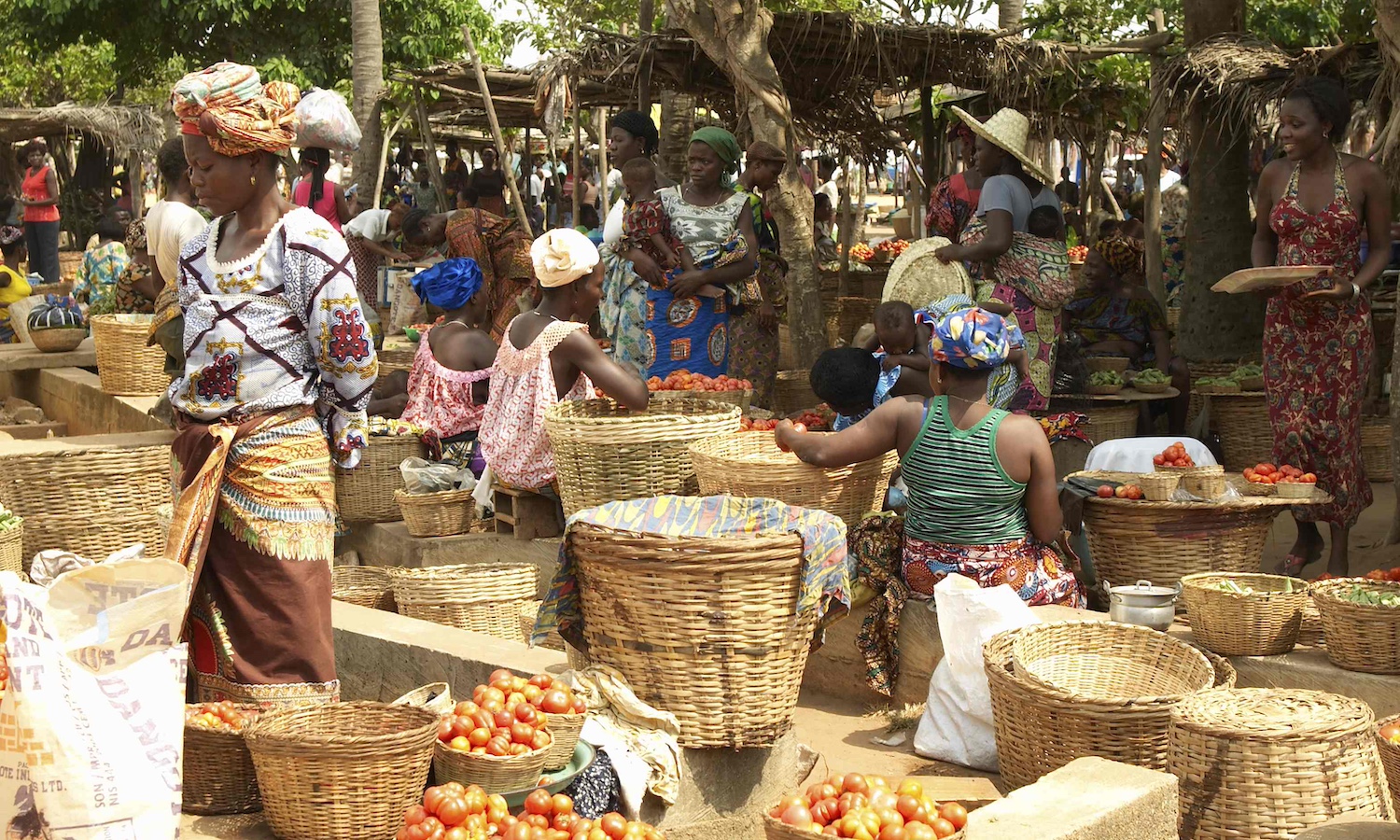

 MEDIA FOR CHANGE NETWORK1 week ago
MEDIA FOR CHANGE NETWORK1 week ago
 MEDIA FOR CHANGE NETWORK2 weeks ago
MEDIA FOR CHANGE NETWORK2 weeks ago
 FARM NEWS1 week ago
FARM NEWS1 week ago
 MEDIA FOR CHANGE NETWORK4 days ago
MEDIA FOR CHANGE NETWORK4 days ago
 MEDIA FOR CHANGE NETWORK4 days ago
MEDIA FOR CHANGE NETWORK4 days ago
 MEDIA FOR CHANGE NETWORK2 days ago
MEDIA FOR CHANGE NETWORK2 days ago
